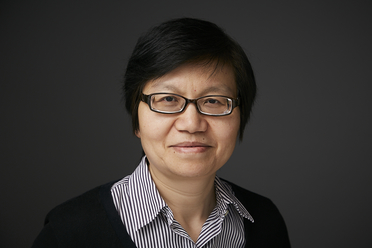
Bei Wu
PhD FAAN FGSA
Dean's Professor in Global Health
Vice Dean, Research
Affiliated Professor, Ashman Department of Periodontology & Implant Dentistry
Co-director, NYU Aging Incubator
bei.wu@nyu.edu
1 212 992 5951
433 First Ave
New York, NY 10010
United States
Bei Wu's additional information
-
-
Dr. Wu is Dean’s Professor in Global Health and Vice Dean for Research at the NYU Rory Meyers College of Nursing. She is an inaugural Co-Director of the NYU Aging Incubator. Prior to joining NYU, she was the Pauline Gratz Professor of Nursing at Duke University School of Nursing. Prof. Wu is an internationally-known leader in gerontology.
As a principal investigator, Prof. Wu has led numerous projects supported by federal agencies and private foundations, including the NIH and CDC. She is currently leading several NIH-funded projects including a clinical trial to improve oral health for persons
with cognitive impairment, and a large secondary data analysis to examine how the co-occurrence of diabetes and poor oral health may lead to the development of dementia and cognitive decline. She co-leads the newly funded Rutgers-NYU Center for Asian Health Promotion and Equity. Through this center, she also leads a 5-year intervention study that focuses on supporting Chinese and Korean dementia caregivers who are at increased risk for high blood pressure and diabetes due to the physical and emotional demands of caregiving. She is a director of the Research and Education Core for the NIA-funded Asian Resource Center for Minority Aging Research (RCMAR).
As a scholar, Prof. Wu is an internationally known leader in gerontology. Her scholarship has been distinguished by interdisciplinary collaborations with researchers in various disciplines, including nursing and dentistry, in the US and abroad. Her research areas cover a wide range of topics related to aging and global health, including oral health, long-term care, dementia, and caregiving. She is one of the first in the nation to study the linkages between oral health and cognitive decline in older adults. Her research has also addressed knowledge gaps in the linkages between oral health and diabetes.
Prof. Wu has devoted much of her time to training the next generation of aging and nursing scientists from dozens of academic institutions in the U.S. and abroad. She has mentored hundreds of faculty members, visiting scholars, and students from various disciplines, including nursing, gerontology, dentistry, medicine, social work, demography, public health, sociology, public policy, geography, and economics. She is successful in mentoring several dozens of early-stage faculty members in receiving competitive funding from NIH, Robert Wood Johnson Scholars, the Alzheimer’s Society (UK), National Science Foundation of China, China Medical Board, National Medical Research Council (Singapore), and many others.
Prof. Wu is a productive researcher. She has published more than 600 peer-reviewed papers, books, reports, and conference abstracts. Her extensive publications cover a wide range of topics related to aging and global health. She has delivered presentations at hundreds of conferences as an invited speaker. Her work has been widely recognized in the field. Research findings from her team have been featured by the National Institute on Aging, and in numerous media outlets, including the New York Times, CNN, BBC, U.S. News and World Report, MarketWatch, CBS News, Reuters, AARP Bulletin, China Daily, Daily Mail, South China Morning Post, and Financial Review.
Her achievement has been recognized by many international and national organizations and she is a fellow of the Gerontological Society of America, the Association for Gerontology in Higher Education, and the New York Academy of Medicine. She is an honorary member of the Honor Society of Nursing, Sigma Theta Tau International, and is the former president of the Geriatric Oral Research Group of the International Association for Dental Research. She has served on a number of NIH review panels and is a frequent reviewer for multiple international funding agencies. She was honored as the 2017 IADR Distinguished Scientist in Geriatric Oral Research. She is the recipient of the 2022 Wei Hu Inspiration Award from the China Health Policy and Management Society.
-
-
PhD - Gerontology Center, University of Massachusetts, BostonMS - Gerontology Center, University of Massachusetts, BostonBS - Shanghai University
-
-
GerontologyGlobal
-
-
Honorary Member, Sigma Theta Tau International - Honor Society of Nursing
-
-
Faculty Honors Awards
Distinguished Scientist Award for Geriatric Oral Research, International Association for Dental Research (2017)Pauline Gratz Professorship, Duke University School of Nursing (2014)J. Morita Junior Investigator Award in Geriatric Oral Health, International Association for Dental Research (2007)Fellow, New York Academy of MedicineFellow, Gerontological Society of AmericaFellow, Association for Gerontology in Higher Education -
-
Publications
No publications could be found that match your search criteria. -
-
Media
-